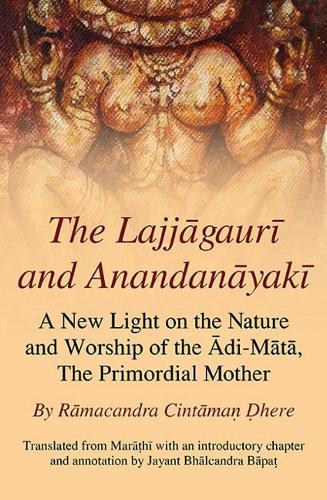
The Lajjagauri and Anandanayaki: A New Light on the Nature and Worship of the Adi-Mata, the Primordial Mother
(Paperback)
Publishing Details
The Lajjagauri and Anandanayaki: A New Light on the Nature and Worship of the Adi-Mata, the Primordial Mother
By (Author) Ramcandra Cintma here
Translated by Jayant Bhalchandra Bpa
Monash University Publishing
Monash University Publishing
1st August 2020
Australia
Classifications
General
Non Fiction
294.52114
Physical Properties
Paperback
320
Width 153mm, Height 234mm
Description
Lajjagauri is perhaps one of India's oldest goddesses with images of her in South Asia dating back to the Indus Civilisation c. 3,000 to 1,500 BC. Her devotees can be traced back even earlier to the Ukraine c. 10,000 BCE. In India, new finds continue to expand the geographical spread of Lajjagauri's devotees, most recently to Odisa. here's work on Lajjagauri is based on tireless pursuits of her image throughout western India. In contrast to the other thousands of Indian goddesses whose images are super abundant, Lajjagauri has become more reclusive as other deities have risen.
Reviews
R. C. heres Lajjgaur is a classic work of scholarship on Hindu goddesses. Exploring the meaning of the Lajjgaur image, here engages in an extensive discussion of sexual imagery and fertility cults in India. He also makes Lajjgaur a springboard for elucidating the cults of other important goddesses such as Reuk, Yallamm, Aditi, and a variety of folk goddesses, as well as the male deities Jotib and Subrahmaya. Long beloved by Marh readers, the book appears here in English for the first time. By making it more widely accessible, Jayant Bpa has performed a great service to Indologists throughout India and the world. -- Anne Feldhaus
Author Bio
Jayant Bhlcandra Bpa holds doctorates in Organic Chemistry and Indology, and is an adjunct research fellow at the Monash Asia Institute at Monash University. His research interests include Hinduism, goddess cults, the Fisher community of Mumbai, and Jainism, and he has published widely in these areas. He is co-editor with Ian Mabbett of The Iconic Female: Goddesses of India, Nepal and Tibet (Monash University Press, 2008) and Conceiving the Goddess: Transformation and Appropriation in Indic Religions (Monash University Publishing, 2016), and a co-author of The Indian Diaspora: Hindus and Sikhs in Australia (DK Printworld, 2015). For his work in education and for the Indian community, Jayant was awarded the Medal of the Order of Australia (OAM) in 2011. Known popularly as A, here was a prolific writer on many aspects of religion in India and on Indian folk culture, especially that of Mahrra. He was second to none in the study of ancient Marh and Saskt literature and was responsible for bringing to light many rare and lost manuscripts. here produced over a hundred books on the religion of the masses. Often working with dense and obscure subject matter, such was heres poetic style of writing that it attracted not only the literati but the average reader as well. Unfortunately, he wrote mainly in Marh, and occasionally in Hindi. For the first time, this translation makes heres enlightened study of the mother goddess available to English readers, in a substantial contribution to the field.
